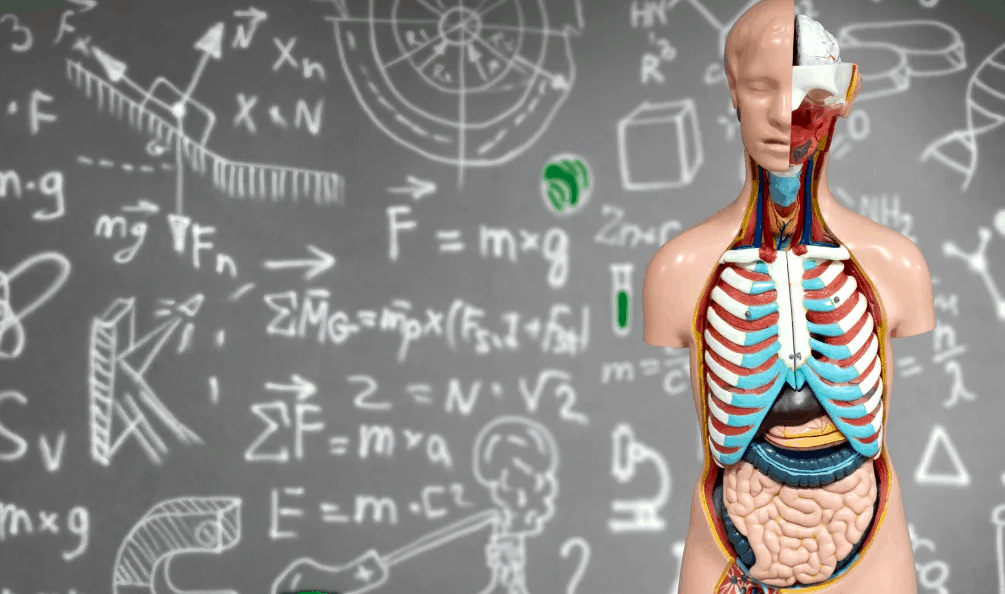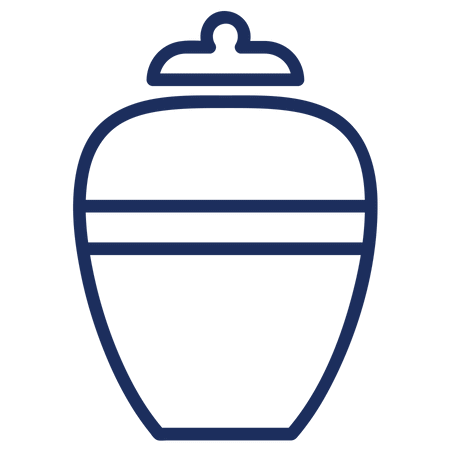
Whole Body Donation in the United States
Donating your body to science once you die is a unique way to deal with the disposition of your remains at the end of your life. It is, at once, both practical and yet an unequivocal way of making a human, ethical, and lasting legacy from your life.
Often otherwise termed an ‘anatomical gift,’ donating your body to medical science enables future generations to benefit.
The United States Medical Schools have basically reached a point where there can be a lack of suitable donor bodies, which restricts the capacity for medical research and medical training of future surgeons and physicians.
The lack of anatomical subjects in recent years has resulted in medical institutions sharing donated subjects between medical students and even between medical departments or medical schools.

The thought of donating your body to science is not for everyone, many people cannot contemplate the notion of their body being used for scientific purposes, but on the whole, this is a reality that we all must face. We all expect first-class medical treatment when we need it, and how do these surgeons and doctors learn the skills they need to treat us?
They need to train, and the only way to truly understand how the human body works is to examine it and practice procedures to treat the living and save lives.
If you so desire, you can make the end of your life meaningful in a whole new dimension. In many ways, a body donation can be a ‘Gift of Life’. As a society, we greatly accept organ donation at death as a means to facilitate life from death.
Similarly, we will become more accepting of the notion of donating our whole body to science as we become more practical about end-of-life rituals.
Realistically, whole-body donation not only provides the individual and/or the family the opportunity to do something wonderful but also covers all the death care expenses. These days a funeral can cost many thousands of dollars.
The average funeral today costs $7,848 (National Association of Funeral Directors survey 2021), and even a simple cremation organized by a funeral home can cost around $1,200.
In an era of Baby Boomers “doing it their way”, and such economic uncertainty for many families, choosing to make an anatomical donation rather than have a traditional funeral can mean saving thousands on funeral costs. An anatomical donation is even being termed a ‘no-cost cremation’ or funeral alternative these days, as this is what you get.
Funeral Alternatives
The American public is becoming more open about whole-body donation as a compassionate funeral alternative. Although many people still see funerals as a tradition and a ritual within our culture, this is now changing as we become better able to discuss death.
Notably, the baby boomer generation is reshaping the death care landscape as they have many aspects of their lives. For many baby boomers, the extravagance of funerals, and the rituals and expenses attached, are unimportant – instead, they take a more practical and personalized approach. As a culture, we are on the cusp of many changing funeral alternative trends.
Cremation is significantly on the increase in the United States, as are funeral alternatives such as ‘green funerals’, as we become more environmentally and more ethically minded.
It can also not be ignored that the current global economic recession has dramatically affected just what ordinary American families can afford when it comes to a funeral. When donating your body to science can mean no funeral expenses for your family, it is quite understandable why more and more Americans are choosing this option.
So if you feel you would like to do something to help the continuance of medical training in the US, if you want a funeral alternative that means something different, or if you are looking for a free or no-cost cremation for your family – then sign up for an anatomical donation program.
How do you make an anatomical donation or whole body donation?
A body donation can be conducted at the time of death or can form part of a person’s last will and testament. You, as an individual, can decide to have your body donated to science, or the immediate next-of-kin can make that decision at the time of death if this is what the family wishes. If you want to donate your body, it is most important to let your family know your wishes, as time is of the essence for your donation to be accepted.
It is a very straightforward process – you need to telephone a body donation program, and they will start the process.
You can register your interest in body donation as a pre-need request, or you can call now if you have an immediate need to make an anatomical donation following a death.
In accordance with the Uniform Anatomical Gift Act (UAGA), donor consent forms must be completed. These can be filled in during a pre-need request or completed by the deceased’s legal next of kin at the time of death.
It can depend upon which organization or institution you opt to donate with as to how the registration and donation program works. For example, some medical institutions that accept donations directly require that you pre-register at least 30 days before death occurs. In contrast, other organizations may consider a donation at the time of death.
How long does the body donation process take?
When a death occurs, and the body is to be donated to science, you should contact the body donation company immediately. They will arrange to collect the deceased from the place of death, coordinate the anatomical donation, arrange the cremation of the deceased following the donation, and usually, the cremated remains are available for the family, if they so desire, within as little as 5 weeks or up to 1 year. Some university programs do not return remains but hold memorials for their donors and have a special place on campus for remembrance.
In certain cases, it may take longer for the remains to be returned to the family if the donation is for specific medical research. Still, ordinarily, all donations are completed within 6 months.
Can anyone donate his or her body to science?
Basically, medical institutions accept donations from all ages, ethnicities, and locations. Many medical institutions and medical schools require cadavers with certain pre-existing conditions for specific training or research purposes. Illnesses such as cancer, stroke, diabetes, dementia, and arthritis DO NOT generally inhibit a donation.

Generally, past medical ailments or surgeries do not disqualify you from making an anatomical donation. However, there are certain restrictions on eligibility. There is a general guide to these below:
- Donors with HIV 1or 2, AIDS-related deaths are not generally accepted
- Donors with Hepatitis B or C are not generally accepted
- Donors with syphilis are not generally accepted
- Donors with kidney failure or jaundice are not generally accepted
- Donors with a severe bacterial or viral infection that resulted in isolation are not generally accepted
- Donors who died as the result of extensive trauma are not generally accepted
- Donors with severe obesity may not be accepted
You should bear in mind that the body donation program may decline to accept your donation. Therefore, you should be prepared and have an alternative arrangement if necessary.
Are there any expenses incurred with donating your body to science?
Generally no. The body donation organization arranges everything, from collecting the deceased, transportation to the donation facility, arranging the death certificate, cremation of the remains post-donation, and returning the cremated remains to the family if desired.
What is helping to make body donation much more widely accepted today is the blunt fact that it does offer a FREE CREMATION, and basically can be a no-cost funeral alternative for those who do not have the funds to afford a funeral.
Be aware that if you deal directly with a local medical institution or university, there may be some expenses. Some institutions do NOT cover the transportation costs of collecting the deceased, and you may need to make arrangements with a funeral home to transport the deceased to the institution. Therefore, you should carefully check this before deciding to donate and which organization to use.
Some funeral homes in certain states are now working in conjunction with local medical schools and universities to facilitate body donation. It is not uncommon for a funeral home to offer a low-cost cremation for around $150 – $350, which is in fact, part of a body donation program. This means that the funeral home does assist you in taking care of the deceased immediately, coordinating with the local university program, and transporting the deceased to the facility, all for a nominal fee to cover expenses.
The merger of certain US airlines has impinged upon the body donation market in the United States. This has reduced the versatility of connections and driven up costs, resulting in some national body donation organizations becoming more limited in where they can collect donations. This means it is all the more imperative to pre-register and check out what your options are to make an anatomical gift without incurring expenses.
Do we get the ashes or cremated remains back after the donation?
Yes, generally, the cremated remains are returned to the family in a basic urn in order that you may conduct your own memorial service.

How can I be sure that the cremated remains returned are my family member?
The team behind the body donation program are, first and foremost, funeral professionals who understand the importance of treating your loved one with dignity, respect, and care. They understand that your decision to make an anatomical gift is a distinct and generous choice but no less important than any other death care ritual.
This means you will have the service of a professional who will be there to support you through the whole process. All donations are confidentially and uniquely identified to ensure that the donation is tracked through the medical system and the cremation process.
Can bequeathing a body to science hinder social security, pension, or insurance payments?
No, the final disposition method of the deceased does not affect any benefits, insurance, or pension entitlements. The death certificate is all that is required for these purposes.
How does your faith or religious denomination affect donating your body to science?
It should not affect this decision at all. Most religions widely accept the practice of body donation as a personal and ethical decision.
Related Articles:
Resources:


